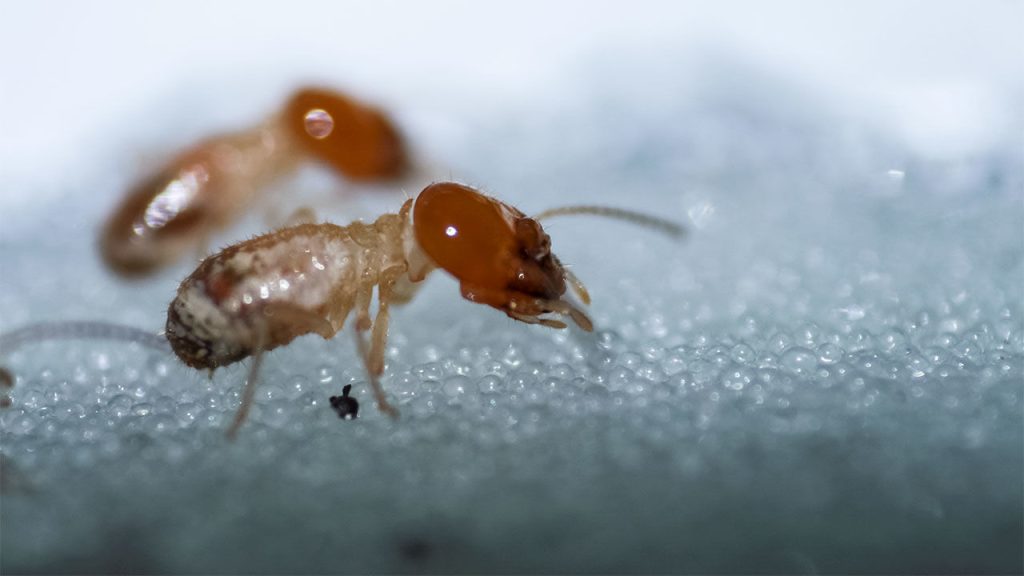Spider bites are a common concern, especially in areas where venomous spiders like black widows and brown recluses are present. While most spider bites are harmless, others may cause severe reactions that require medical attention. Being aware of when to worry about a spider bite helps you protect yourself and your loved ones.
In this guide, we’ll talk about everything you need to know about spider bite symptoms, how to identify venomous bites, and when to seek medical help.
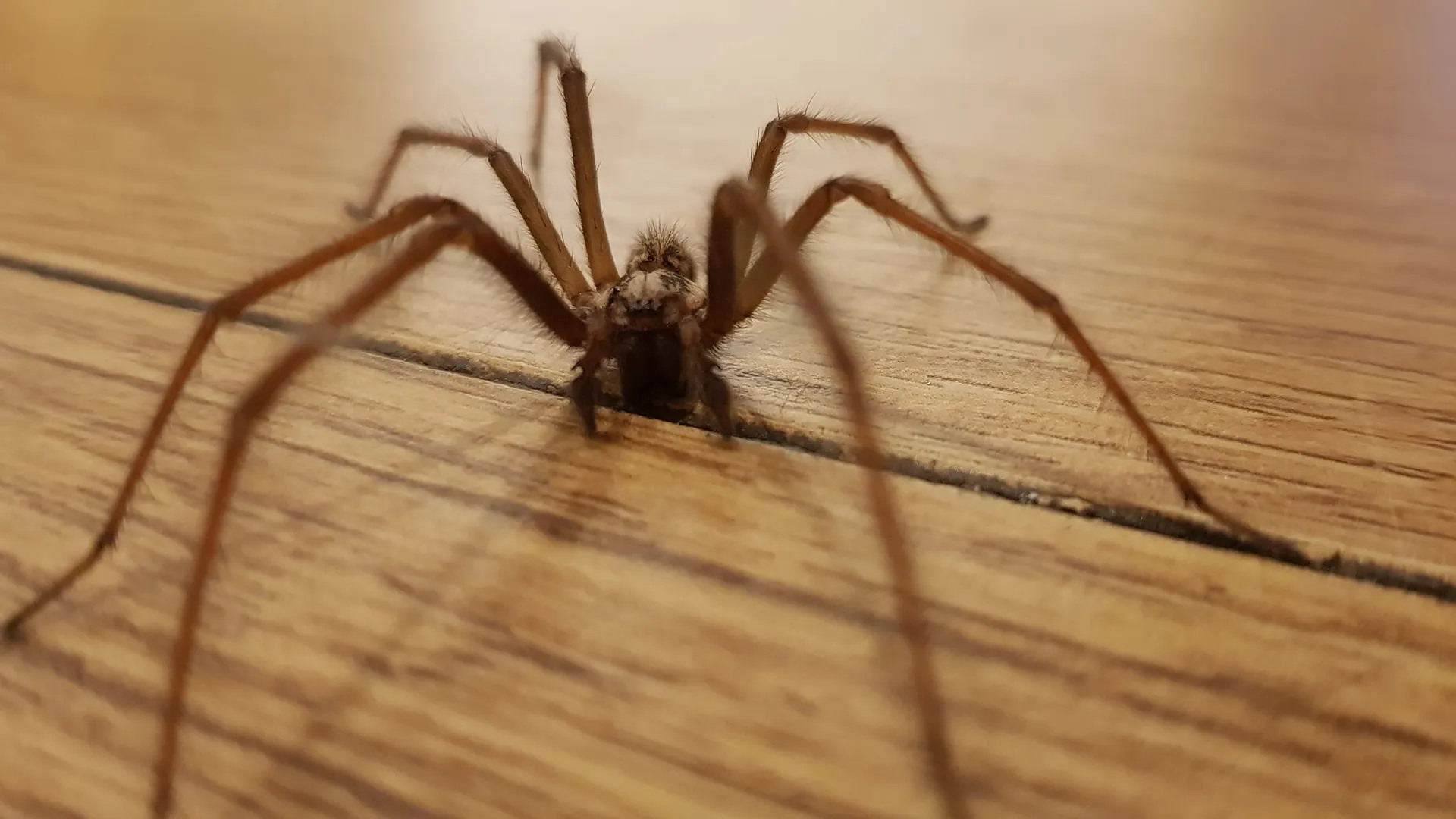 These minor symptoms usually subside within a few days and don’t require treatment. However, if symptoms worsen or you suspect a bite from a venomous spider, seek medical advice promptly.
These minor symptoms usually subside within a few days and don’t require treatment. However, if symptoms worsen or you suspect a bite from a venomous spider, seek medical advice promptly.
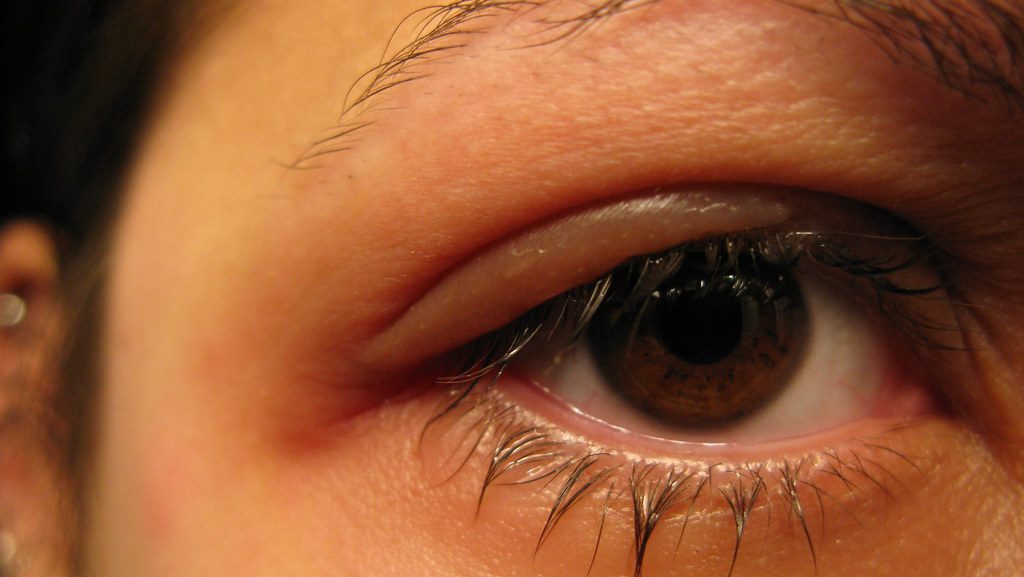
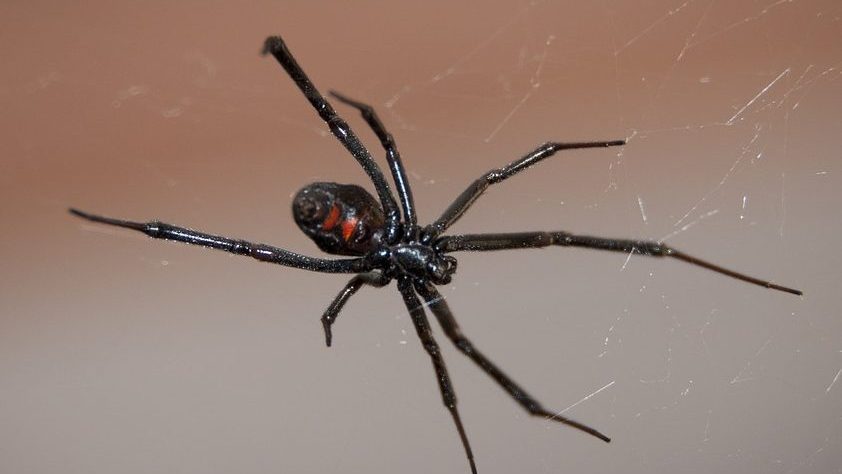 Black widow bites can cause intense pain and muscle cramps, often requiring medical attention.
Brown Recluse Spider
The brown recluse is infamous for its necrotic venom, which can cause skin damage. It is often identified by the violin-shaped marking on its back.
Black widow bites can cause intense pain and muscle cramps, often requiring medical attention.
Brown Recluse Spider
The brown recluse is infamous for its necrotic venom, which can cause skin damage. It is often identified by the violin-shaped marking on its back.
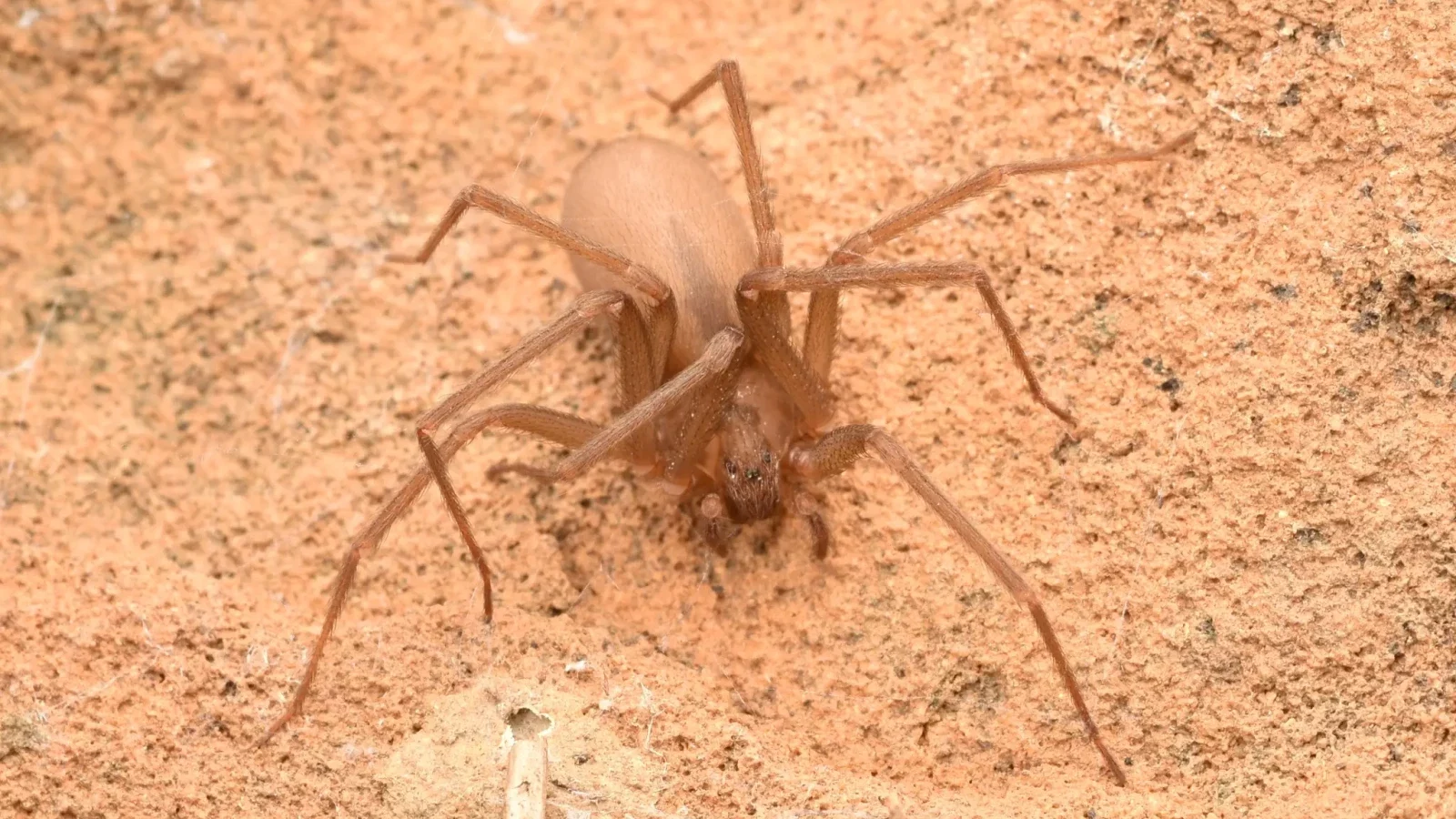 If bitten by a brown recluse, early treatment is essential to prevent the venom from causing severe tissue damage. Take medical help if symptoms worsen.
Other Biting Spiders
While less dangerous than black widows and brown recluses, certain spiders can still bite humans. Here are two notable examples:
If bitten by a brown recluse, early treatment is essential to prevent the venom from causing severe tissue damage. Take medical help if symptoms worsen.
Other Biting Spiders
While less dangerous than black widows and brown recluses, certain spiders can still bite humans. Here are two notable examples:
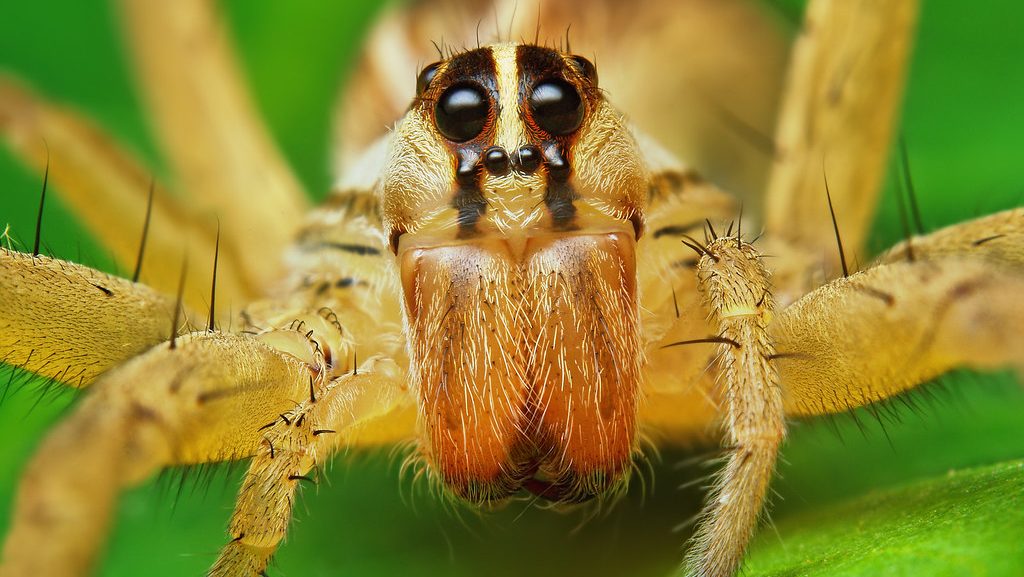 Though these spiders are not as dangerous as their counterparts, bites should still be monitored. Medical attention may be needed in case of a serious issue.
Visit our Species, Control, and DIY Guide sections for additional resources on spiders and ways to tackle a spider infestation.
Though these spiders are not as dangerous as their counterparts, bites should still be monitored. Medical attention may be needed in case of a serious issue.
Visit our Species, Control, and DIY Guide sections for additional resources on spiders and ways to tackle a spider infestation.
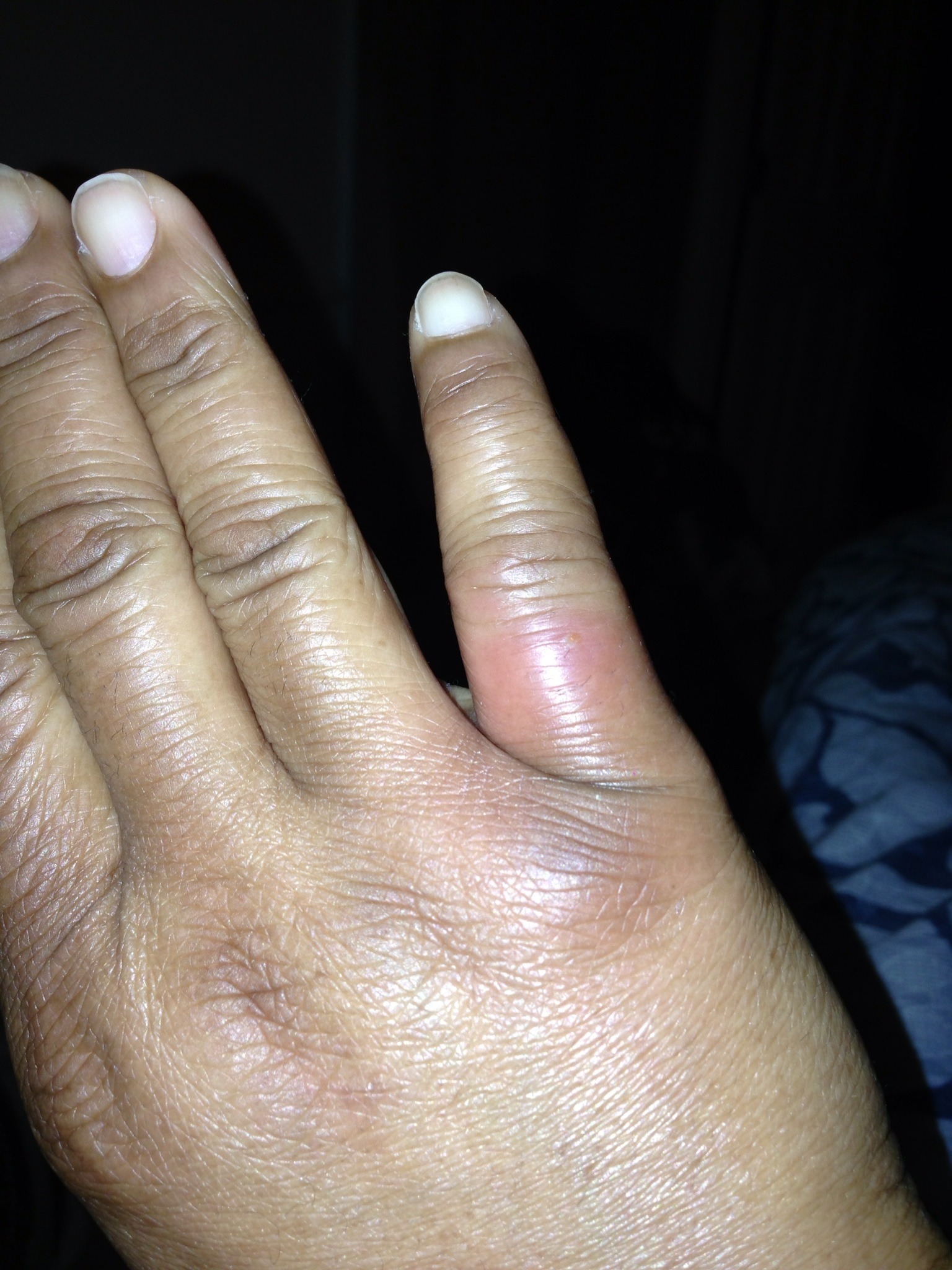 If spider sightings or bites persist, consider consulting a pest control professional to ensure your home remains spider-free. Our team can provide a customized approach to protect your home effectively.
If spider sightings or bites persist, consider consulting a pest control professional to ensure your home remains spider-free. Our team can provide a customized approach to protect your home effectively.

When Should You Worry About a Spider Bite?
Spider bites typically occur when a spider feels threatened and bites in self-defense. Most spiders have weak venom that is harmless to humans, causing only mild irritation. However, bites from certain species, like the brown recluse or black widow, can cause severe reactions that may require medical attention.Symptoms of Spider Bites
-
Redness and Swelling: A harmless spider bite may cause mild redness and slight swelling.
-
Itching or Irritation: The bite area might itch, similar to a mosquito bite.
-
Mild Tenderness or Pain: You may experience some discomfort or soreness in the affected area.

Symptoms of a Venomous Spider Bite
A venomous spider bite can trigger severe reactions that require medical attention. While most spider bites are harmless, bites from brown recluse or black widow can result in serious symptoms. Here’s what to watch for:Symptoms of Venomous Spider Bites
-
Severe Pain: Pain at the bite site that may radiate to other body parts.
-
Spreading Redness: Redness that extends beyond the bite, indicating a possible allergic reaction or infection.
-
Warmth and Swelling: The bite area may feel warm or swollen, which could signal an infection.
-
Fever and Chills: Systemic symptoms like fever, chills, or body aches may occur after a venomous bite.
-
Nausea or Vomiting: Some spider venoms cause gastrointestinal distress, leading to nausea or vomiting.
-
Breathing Difficulty or Chest Pain: If breathing becomes difficult or you experience chest tightness, seek medical attention immediately.
Which Spiders Are Dangerous?
Spiders are mostly harmless to humans, but a few species have enough venom to cause health issues. Understanding which spiders to watch out for can help you respond quickly if bitten. Here are the key spiders you should be concerned about: Black Widow Spider The black widow is one of the most recognizable and dangerous spiders. It has a shiny black body and red hourglass marking make it easy to identify.Black Widow Spider Characteristics
-
Appearance: Black body with a red hourglass marking on its abdomen.
-
Venom: Neurotoxic venom that affects the nervous system.
-
Symptoms: Severe pain, cramping, muscle spasms, and, in severe cases, breathing difficulties.
 Black widow bites can cause intense pain and muscle cramps, often requiring medical attention.
Brown Recluse Spider
The brown recluse is infamous for its necrotic venom, which can cause skin damage. It is often identified by the violin-shaped marking on its back.
Black widow bites can cause intense pain and muscle cramps, often requiring medical attention.
Brown Recluse Spider
The brown recluse is infamous for its necrotic venom, which can cause skin damage. It is often identified by the violin-shaped marking on its back.
Brown Recluse Spider Characteristics
-
Appearance: Light brown body with a violin-shaped marking on its back.
-
Venom: Necrotic venom that can destroy skin tissue.
-
Symptoms: Bites are initially painless but may later cause severe pain, skin ulcers, and necrosis (tissue death).
 If bitten by a brown recluse, early treatment is essential to prevent the venom from causing severe tissue damage. Take medical help if symptoms worsen.
Other Biting Spiders
While less dangerous than black widows and brown recluses, certain spiders can still bite humans. Here are two notable examples:
If bitten by a brown recluse, early treatment is essential to prevent the venom from causing severe tissue damage. Take medical help if symptoms worsen.
Other Biting Spiders
While less dangerous than black widows and brown recluses, certain spiders can still bite humans. Here are two notable examples:
Characteristics of Hobo and Wolf Spiders
-
Hobo Spiders: Their bites may cause mild pain and irritation, but they are generally less dangerous than black widows or brown recluses.
-
Wolf Spiders: Large, fast-moving spiders that can bite when provoked. Their bites do not cause any harm except mild irritation.
 Though these spiders are not as dangerous as their counterparts, bites should still be monitored. Medical attention may be needed in case of a serious issue.
Visit our Species, Control, and DIY Guide sections for additional resources on spiders and ways to tackle a spider infestation.
Though these spiders are not as dangerous as their counterparts, bites should still be monitored. Medical attention may be needed in case of a serious issue.
Visit our Species, Control, and DIY Guide sections for additional resources on spiders and ways to tackle a spider infestation.
When to Seek Medical Help for a Spider Bite?
While most spider bites are harmless and heal on their own, certain symptoms may require medical attention. If severe pain persists or begins to spread from the bite site, it could indicate a venomous bite that needs prompt treatment. Swelling and redness that grow larger or spread may indicate infection, especially if accompanied by pus or discharge. More serious symptoms, such as fever, muscle cramps, difficulty breathing, or chest tightness, may signal a severe reaction or allergic response to the bite. If these symptoms occur, seek emergency medical attention immediately to avoid potential complications.
How to Prevent Spider Bites?
Preventing spider bites requires minimizing encounters with spiders in your home and while outdoors. You can take these proactive measures to reduce the chances of being bitten. Here are effective prevention tips:Spider Prevention Tips
-
Clean your home to eliminate hiding spots in basements, attics, and closets.
-
Vacuum corners, ceilings, and under furniture regularly to remove spider webs and potential habitats.
-
Block cracks and gaps in walls, windows, and doors using caulk or weather stripping.
-
Install screens on windows and entry points to keep spiders from entering your home.
-
Wear gloves when handling boxes, firewood, or gardening to protect your hands from bites.
-
Use long-sleeve clothing and pants when working in sheds, attics, or basements to protect your skin.
-
Remove spider webs regularly using a vacuum or broom, especially in attics, basements, and ceiling corners.
Myths and Facts About Spider Bites
Spider bites are often misunderstood, leading to several misconceptions. Here are some common myths and the corresponding facts to help you separate truth from fiction:| Myth | Fact |
|---|---|
| All spider bites are dangerous. | Most spider bites are harmless, causing only mild irritation. |
| A spider bite will always cause severe symptoms. | Many spider bites result in minor symptoms like redness and itching. |
| You can identify a dangerous spider by its color alone. | Color alone is unreliable, as dangerous spiders may not have distinctive coloring. |
| Home remedies can replace medical treatment. | Severe spider bites require professional medical care, not just home remedies. |
| Spiders only bite if they are aggressive. | Spiders bite as a defense mechanism, often when they feel threatened, but not all bites are from aggressive behavior. |


